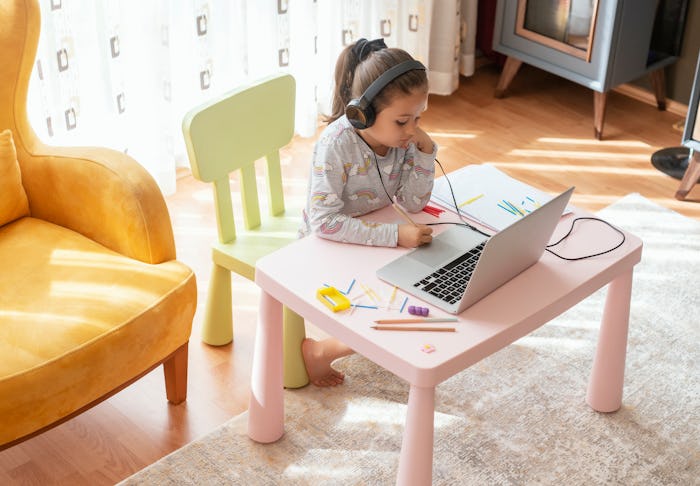Life

Here's What Parents Of Kids With IEPs Need To Know About Their Legal Rights RN
Navigating homeschooling is hard for everyone. Balancing work (if you're lucky enough to be employed), parenting, and teaching is extremely challenging for every parent, but for parents of special needs children, it can feel impossible. Honestly, parents of kids with IEPs should know about their rights during quarantine, because these unique circumstances shouldn't mean your children go without.
As the mom of an autistic son, I can tell you that these past few months have been incredibly stressful. It took us weeks to figure out how my son could continue with some of his services, and what his individualized educational program (IEP) meant with distance learning. Certain aspects of his IEP, like extended test time, were no longer needed as timed tests aren't a part of his daily routine anymore, but other matters, like extensive one-on-one tutoring and cognitive therapies, weren't happening as I am not qualified to help him in these areas. While every state is dealing with this differently, I was assured by the New York State Department of Education, through my son's speech therapist and his school, that he would be receiving all the services that they could functionally provide through virtual learning programs.
New York did not dissolve my son's IEP, but have transitioned to a temporary RLP or remote learning program. It is essentially a redesigned program that states that my son will receive all the therapy that can be achieved through audio-visual engagement, and specific tutoring in the same capacity. Most states, including California and New Jersey, have mandated similar approaches. Federally, the Secretary of Education, Betsy DeVos issued a statement on April 27 (over a month into distance learning for most students, thank you for the delay) noting that the Individuals with Disabilities Education Act (IDEA) would not be amended or changed in light of the crisis of COVID-19. “While the Department has provided extensive flexibility to help schools transition, there is no reason for Congress to waive any provision designed to keep students learning. With ingenuity, innovation, and grit, I know this nation’s educators and schools can continue to faithfully educate every one of its students," she said, reported Education Week.
I contacted Rebekah Novemsky, the Family Support Liaison at the New Jersey Council of Developmental Disabilities, and asked her whether or not the schools are mandated to continue with services and supports. She tells Romper, "The short answer is yes. If the child has and IEP or individualized education plan, it is a legal document, so yes." Because there has been such little federal guidance on how states should respond or amend their procedures, leaving it up to the states and districts to develop plans with educators, it is the burden of the parents to understand each student's newly-adopted distance learning program, and what types of communication parents should expect to have with their children's team.
It's never going to be a perfect system. Distance learning simply doesn't allow for the close, interpersonal contact that many therapies and IEPs require. Speech therapists can't watch your child manipulate their tongues in-person because it's potentially dangerous for both of them. However, that doesn't mean your child should have their services abandoned, and, according to IDEA, that's against the law. If you feel as though your child's school isn't maintaining reasonable standards, consider filing a report with their district or the state. Unfortunately, many of us as parents of children with special needs already have experience doing this. You are your child's best advocate, and you know what they need. Hopefully, this will all end sooner than anyone expects and we can transition back to the way things were before, but in any case, your child deserves the best education they can get, and they are entitled to it.